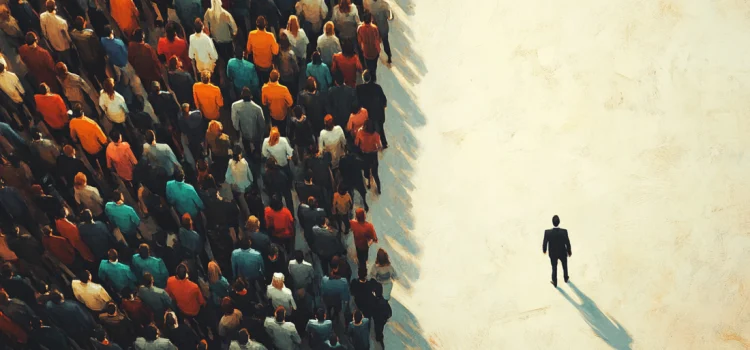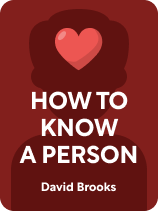

This article is an excerpt from the Shortform book guide to "How to Know a Person" by David Brooks. Shortform has the world's best summaries and analyses of books you should be reading.
Like this article? Sign up for a free trial here.
Why do people deserve to be seen as individuals? How can you stop relying on stereotypes to judge someone?
David Brooks claims that to really know another person, you first have to see them as an individual. Unlike a collective group of people, individuals have a unique set of life experiences, characteristics, motivations, and goals.
Here’s why you should start looking at people as individuals vs. people you can’t tell apart.
Seeing People as Individuals
Most of us form our initial impression of others within minutes of meeting them and don’t take the time to learn much more about them. This is why it’s important to look at them as individuals vs. people who just belong in certain categories.
(Shortform note: Neuroscientists have discovered that our brains continue to learn to make sense of a person’s face and identity for over a year after initially meeting them. These findings suggest that the process of becoming familiar with someone is gradual and complex. This supports Brooks’s argument that it’s impossible to know someone well within minutes of meeting them—and underscores the importance of investing time in relationships to get to know more about others than our first impressions reveal.)
Brooks explains that when we fail to learn about the particulars of another person’s life and character, we miss out on the opportunity to see them as complex people with their own full, unique lives. Instead, we stereotype and label others, coming to snap judgments about who they are and how they live their lives. By making assumptions about who someone has been in the past or jumping to conclusions about who they’ll be in the future, we miss the chance to see who they are in the present moment, right in front of us.
(Shortform note: As Brooks explains, we have a natural tendency to stereotype and label people. Social psychologists say our tendency to categorize people begins in infancy and helps us navigate complex social environments. However, this innate bias often prevents us from being curious about others and from seeing each person as an individual. Overcoming this cognitive bias requires conscious effort: Our brains are resistant to changing the established categories that we slot other people into since these provide such a useful mental shortcut in our daily lives.)
Brooks argues that when we rely on easy stereotypes and quick judgments, we show a lack of curiosity about other people—and he notes that the people around us can see that lack of curiosity. We’ve all met somebody who’s treated us as just another tool they can use to get what they want, or as an obstacle standing between them and what they hope to achieve. We don’t like feeling our individuality and humanity minimized. But that doesn’t stop us from dismissing others in the same way, and it doesn’t feel good for us or for them.
(Shortform note: How can you tell when someone shows a lack of curiosity and is stereotyping or dismissing you? Psychologists say you can look for some telltale signs: They may fail to show any interest in your life, ignore how their actions affect you, or disregard requests to change behaviors that you object to. They might also make you feel unheard or unseen, as Brooks warns, or dismiss your opinions and minimize your emotions. Psychologists note that while occasional lapses might not be significant, persistent emotional unavailability is a red flag to watch out for in your relationships.)

———End of Preview———
Like what you just read? Read the rest of the world's best book summary and analysis of David Brooks's "How to Know a Person" at Shortform.
Here's what you'll find in our full How to Know a Person summary:
- The benefits of really getting to know other people
- How to better understand people on a personal level
- Why our morality and relationships are in a crisis






